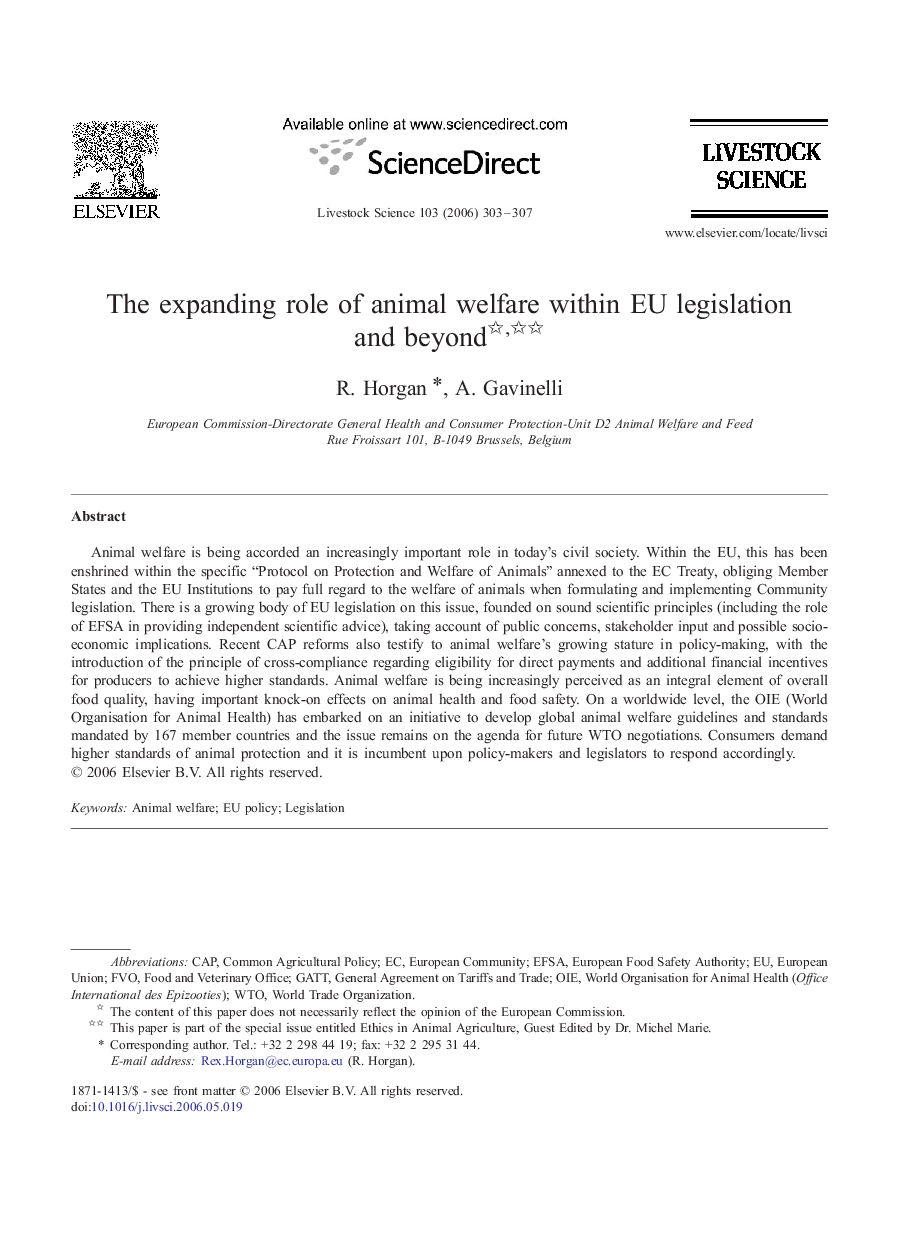| Article ID | Journal | Published Year | Pages | File Type |
|---|---|---|---|---|
| 2449199 | Livestock Science | 2006 | 5 Pages |
Animal welfare is being accorded an increasingly important role in today's civil society. Within the EU, this has been enshrined within the specific “Protocol on Protection and Welfare of Animals” annexed to the EC Treaty, obliging Member States and the EU Institutions to pay full regard to the welfare of animals when formulating and implementing Community legislation. There is a growing body of EU legislation on this issue, founded on sound scientific principles (including the role of EFSA in providing independent scientific advice), taking account of public concerns, stakeholder input and possible socio-economic implications. Recent CAP reforms also testify to animal welfare's growing stature in policy-making, with the introduction of the principle of cross-compliance regarding eligibility for direct payments and additional financial incentives for producers to achieve higher standards. Animal welfare is being increasingly perceived as an integral element of overall food quality, having important knock-on effects on animal health and food safety. On a worldwide level, the OIE (World Organisation for Animal Health) has embarked on an initiative to develop global animal welfare guidelines and standards mandated by 167 member countries and the issue remains on the agenda for future WTO negotiations. Consumers demand higher standards of animal protection and it is incumbent upon policy-makers and legislators to respond accordingly.
